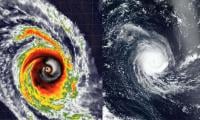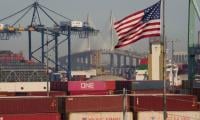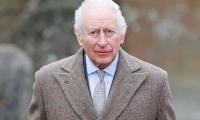From one transition to the next
Today’s Pakistan is facing multiple challenges at multiple fronts. What is unfortunate is that these challenges are totally ignored in the political and media circles. No one cares – whether our rulers, our politicians or our defenders – to concentrate on countering these challenges. To me, the issue is not who becomes the prime minister of Pakistan. The issue is that these challenges would be the same irrespective of whether the prime minister is Nawaz Sharif, Imran Khan or Zardari or anyone else.
The main tragedy is that these challenges relate to the state and not to politics, but we seem to be looking for a solution to our challenges by shifting individuals around in politics. It is the state – instead of politics – which has the opportunities to counter and overcome these challenges.
There is an institutional tug of war but somehow we try to show it as a tussle among politicians. This is the main tragedy due to which these challenges are getting worse in both proportion and intensity, and thereby posing a serious threat to the state.
However, the biggest tragedy is that the country is passing through a difficult phase, which needs cordial relations and a working engagement among all state institutions. Unfortunately, though, we seem to be worsening it by transforming what is an individual and institutional tussle into an almost-war.
‘Pakistan is passing through a critical phase’ – this is a phrase and cliché that we have all heard since childhood. I do think, though, that at the moment Pakistan is passing through the most critical phase due to the multiple transitions that are simultaneously happening.
History has proved that a period of transition is always the most critical stage in the life of a nation. While it is usually difficult to handle even a single transition, the Pakistani nation is facing multiple transitions.
It is a historical reality that a transition going through smoothly results in development and prosperity. However, in case of any mistake in the transition process, serious crises can emerge. Effective transitions and positive change are the prerequisites for the progress of society, state and nation. Prolonged status quo, stagnant society and social inertia – all these elements spoil the social and political system which paves the way to the failure and fall of a nation. Hence, an effective transition for a positive, stable and durable change is very important.
Generally, transition comes in two ways: one, as a natural evolutionary process, or due to some crises. And, two, it is pre-planned, well-organised and effectively implemented by the leadership. Currently, Pakistan is facing multiple transitions which are both evolutionary and crisis-based. And neither the national leadership and state institutions nor our society is ready to face these transitions.
One of the transitions that Pakistan is going through is the process of rapid urbanisation from a tribal and rural society. In this context, the tussle is between the forces of the status quo – equipped with the traditional mores – and the new generation which is equipped with modern technologies. This conflict can be seen at the individual, family, regional and social levels.
Similarly, since the inception of Pakistan, there has been a clash of views regarding the identity of the state – should it be a nation-state or a religious/theocratic state. At present, multiple factors have forced us to ensure Pakistan is a nation-state instead of a religious state or theocratic state. In many aspects, Pakistan is in the transition phase and moving towards being a nation-state. However, some of the forces who want to keep Pakistan a religious state are putting up a rather strong resistance to this. Realistically speaking, this is a very dangerous transition – but we are either unaware of its intensity or unwilling to accept it as a big challenge.
Pakistan is also going through a transition at the geo-political front. Since the birth of the country, Pakistan was in the American camp. But now, the country seems to be moving to the Russian and Chinese block – thereby annoying the US. The dilemma that Pakistan faces is the speed and extent of the transition. If Russia and China fail to support us and if we keep moving with the same pace to their camp, it might result in a serious crisis on our diplomatic front. Similarly, if we stick to the US camp – as in the past – that would also lead to problems. This is a critical transition with many potential challenges, but we are either indifferent or unwilling to focus on it.
In addition, there is another challenging transition which the country is facing – the transition from a security state to a welfare state. The desire for this transition has been intensified in the last two decades – thanks to modern technologies and a free flow of information across the borders. An active judiciary and a vibrant media have speeded up the process. However, security institutions have mostly insisted on keeping Pakistan a security state – due to the external threats the country faces. It seems that this transition is in reverse mode. Currently, all the forces – the civil society, media and judiciary – which want the transition seem to be on the losing ground. This is one of the biggest challenges for the state. In such circumstances, a small event causes a major incident which sometimes goes beyond the control of the forces of the status quo and can end up leading to unintentional overreaction.
To deal effectively with the aforementioned transitions, there is a dire need that all stakeholders come together and find a way forward. Unfortunately, at this crucial stage, the country is in the phase of a political transition in the shape of general elections. General elections are usually a time in which the political tug of war reaches the extreme. Politicians become very selfish and their vested interests and party goals dominate the national interest. Moreover, our history shows that elections in Pakistan are not only a contest between political forces but an exercise in which non-political forces also become strong parties. This time seems no different. In fact, some political forces consider such elements the real opponents. These transitions combined lead to an unfortunate tussle between various power centres. This can only worsen the existing challenges we face. In all this, it is unfortunate that every political party and every institution considers itself to be in the right.
While my suggestion may not be adhered to, I feel that the only way through which we can successfully counter all these challenges is by all stakeholders holding back their animosities and resentments and instead forming a Truth and Reconciliation Commission. Also, as per the suggestion of Raza Rabbani, a national dialogue needs to be held among all state institutions so that we can come up with new rules of the game.
The writer works for Geo TV.
Email: saleem.safi@janggroup. com.pk
-
 Tropical Cyclone Horacio Becomes World’s First Category 5 Superstorm Of 2026: Latest Forecast & Risks Explained
Tropical Cyclone Horacio Becomes World’s First Category 5 Superstorm Of 2026: Latest Forecast & Risks Explained -
 Hilary Duff Recalls Brutal Thing She Did To Husband Matthew Koma After Losing Their Home In Los Angeles Wildfire
Hilary Duff Recalls Brutal Thing She Did To Husband Matthew Koma After Losing Their Home In Los Angeles Wildfire -
 Princess Beatrice, Edo Mapelli Mozzi Fall Into Marital Woes: ‘He Doesn’t Want Her Seen With Andrew’
Princess Beatrice, Edo Mapelli Mozzi Fall Into Marital Woes: ‘He Doesn’t Want Her Seen With Andrew’ -
 Meta’s Internal Memo Reveals How Executives Ignore Safety Warnings To Push Messenger Encryption Rollout Despite Risks To Teen Safety
Meta’s Internal Memo Reveals How Executives Ignore Safety Warnings To Push Messenger Encryption Rollout Despite Risks To Teen Safety -
 Robert Carradine's Shocking Suicide Answer 'lies' In Brother David Old Tragic Incident
Robert Carradine's Shocking Suicide Answer 'lies' In Brother David Old Tragic Incident -
 'CIA' Star Tom Ellis Drops Bombshell Reason Why He Stayed Away From 'FBI': I Know What They Do'
'CIA' Star Tom Ellis Drops Bombshell Reason Why He Stayed Away From 'FBI': I Know What They Do' -
 Biographer Calls Andrew National Security Risk: ‘This Huge Can Of Worms Is Getting Closer To King’
Biographer Calls Andrew National Security Risk: ‘This Huge Can Of Worms Is Getting Closer To King’ -
 DeepSeek Under Fire: Anthropic Accuses Chinese AI Firm Of Misusing Claude For Unauthorized Model Training
DeepSeek Under Fire: Anthropic Accuses Chinese AI Firm Of Misusing Claude For Unauthorized Model Training -
 Would You Drive In A Driverless Taxi? AI-powered Robotaxis Roll Out In London Amid Growing Debates Over Road Safety, Passenger Convenience
Would You Drive In A Driverless Taxi? AI-powered Robotaxis Roll Out In London Amid Growing Debates Over Road Safety, Passenger Convenience -
 Trump’s Tariff Plan: 10 Percent Rate Takes Effect Despite 15 Percent Announcement Following Supreme Court Ruling
Trump’s Tariff Plan: 10 Percent Rate Takes Effect Despite 15 Percent Announcement Following Supreme Court Ruling -
 Eric Church Reveals How Vince Gill Made His Brother Barndon's Death 'a New Normal'
Eric Church Reveals How Vince Gill Made His Brother Barndon's Death 'a New Normal' -
 Harry, Meghan Offer Help To Beatrice, Eugenie As They Navigate Big Decision
Harry, Meghan Offer Help To Beatrice, Eugenie As They Navigate Big Decision -
 Robert Carradine's Heartbroken Brother Keith Breaks Silence On Actor's Tragic Death
Robert Carradine's Heartbroken Brother Keith Breaks Silence On Actor's Tragic Death -
 How Deepfake Scams Are Reaching Record Levels By Targeting Social Media Users: Everything You Need To Know
How Deepfake Scams Are Reaching Record Levels By Targeting Social Media Users: Everything You Need To Know -
 Taylor Swift Embraces Herself As Her Career Hits Major Milestone: 'I Am Blown Away'
Taylor Swift Embraces Herself As Her Career Hits Major Milestone: 'I Am Blown Away' -
 Andrew’s Arrest Takes Over US Elites: ‘They’re Calling Lawyers In Fear The Police Will Pounce’
Andrew’s Arrest Takes Over US Elites: ‘They’re Calling Lawyers In Fear The Police Will Pounce’



